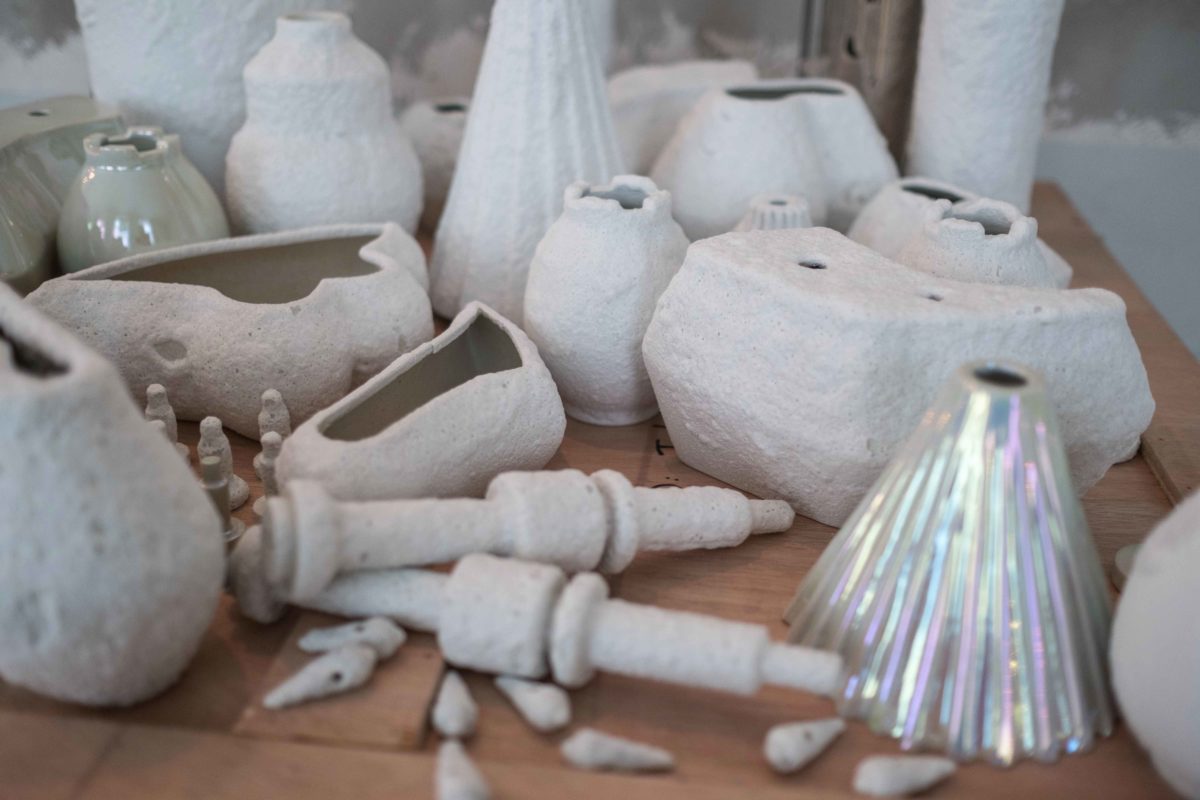Zheng Mahler

Zheng Mahler: Mutual Aid (Ex Omnia Conchis; The Mountains are High and the Emperor is Far Away), 2016
Installation, porcelain with glaze made of Abalone shells and 2-channel HD-video
Courtesy the artists
Mutual Aid (Ex Omnia Conchis; The Mountains are High and the Emperor is Far Away), 2016
Materiality and function do not fit together: watch parts, but made of porcelain? Was there once a Chinese emperor who commissioned a monumental clock made of porcelain parts? The idea is not so outrageous, after all, when one remembers that a marble boat is anchored on the lake at the Summer Palace in Beijing.
The story which Mutual Aid describes is both higly unlikely, and true. At the beginning of the 20thcentury, when the Chinese Empire was in decline, Chinese intellectuals were inspired by a book that featured ‘mutual’ help in the title. At that time, intellectuals sought an alternative social model for China. The book, in turn, comes from the founder of the anarchist movement, the Russian aristocrat Pyotr Kropotkin.
In contrast to Darwin’s theory of ‘survival of the fittest,’ Kropotkin had studied forms of work and life in the second half of the nineteenth century that were not based on mutual exploitation and hierarchy. He found them in the animal kingdom, with bees and ants, but also in the Swiss-French Jura. Many watchmaker families lived here in relative seclusion, working with strictly horizontal forms of production. One family would made the thread, the next the tiny screws, the third the small hands and so on, until everything was put together in the end. This proto-socialist watchmaking collective was supposed to serve the Chinese as a political inspiration. However, the Chinese porcelain factories in Jingdezhen developed very similar horizontal work structures. Thanks to precisely coordinated work steps, they were able to produce thousands of pieces per day as early as the 17thcentury. The best went to the Imperial Palace, while the rest were sent all over the world.
Chinese porcelain, as well as silk and tea, were in great demand in Europe. Conversely, the Chinese were never particularly interested in Western products in the course of their long history, with one exception: watches and machines of all kinds.
This imbalance led to gigantic trade deficits, as one can imagine. Perhaps one can also imagine how these imbalances were eradicated: by force.